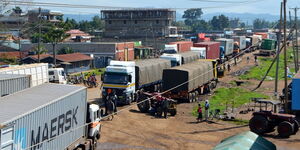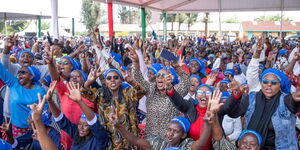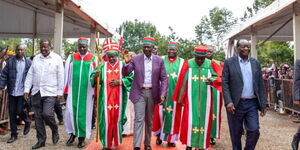Mombasa West Community residents on Wednesday July 4, filed a petition with the Parliamentary Public Petitions Committee, seeking parliament's intervention to have the stalled Mombasa Port Access Road project completed.
The main bone of contention pitting the residents against the agency is the lack of compensation following the acquisition of their properties for the infrastructure project.
In the petition read by Jomvu MP Twalib Bady Twalib on Tuesday, the residents accused the Kenya National Highway Authority (KENHA) of forcibly evicting them from their homes in 2017 and failing to follow up on compensation.
They asked the National Assembly to take immediate action and ensure they get fair compensation in accordance with the true value of their assets
It was reported that in 2014, KENHA prepared a flawed Resettlement Action Plan that did not utilise Geographic Information System (GIS) for asset inventory tabulation.
Furthermore, it was claimed that the project was on public land adding to the confusion and hindering the compensation.
They urged the National Assembly to direct KENHA to implement a Corrective Action Plan agreed upon with the Project Affected Persons and to adopt the use of a Geographic Information System in the asset inventory process.
In the petition, the residents also expressed disillusionment with the National Land Commission which they accused of conducting an ambiguous assessment that disadvantaged the Project Affected Persons.
Key Project
According to the petitioners, the stalled project was set to improve connectivity between the Port of Mombasa and the neighbouring countries.
Some of the countries the project was expected to connect are Uganda, Rwanda, Burundi, and the Democratic Republic of Congo (DRC).
"The construction work has come to a standstill in Jomvu Madafuni, leaving the road in a deplorable condition despite its significant role as the gateway to Mombasa," read part of the documents submitted to Parliament.
Project
The 41.3 kilometre multibillion stretch was initiated by KENHA in 2017 and was expected to be complete in 2020.
It was financed by the African Development Bank, German KfW, European Investment Bank, and the EU-Africa Infrastructure Trust Fund. The project was intended to include compensation for all Project Affected Persons along the corridor.












